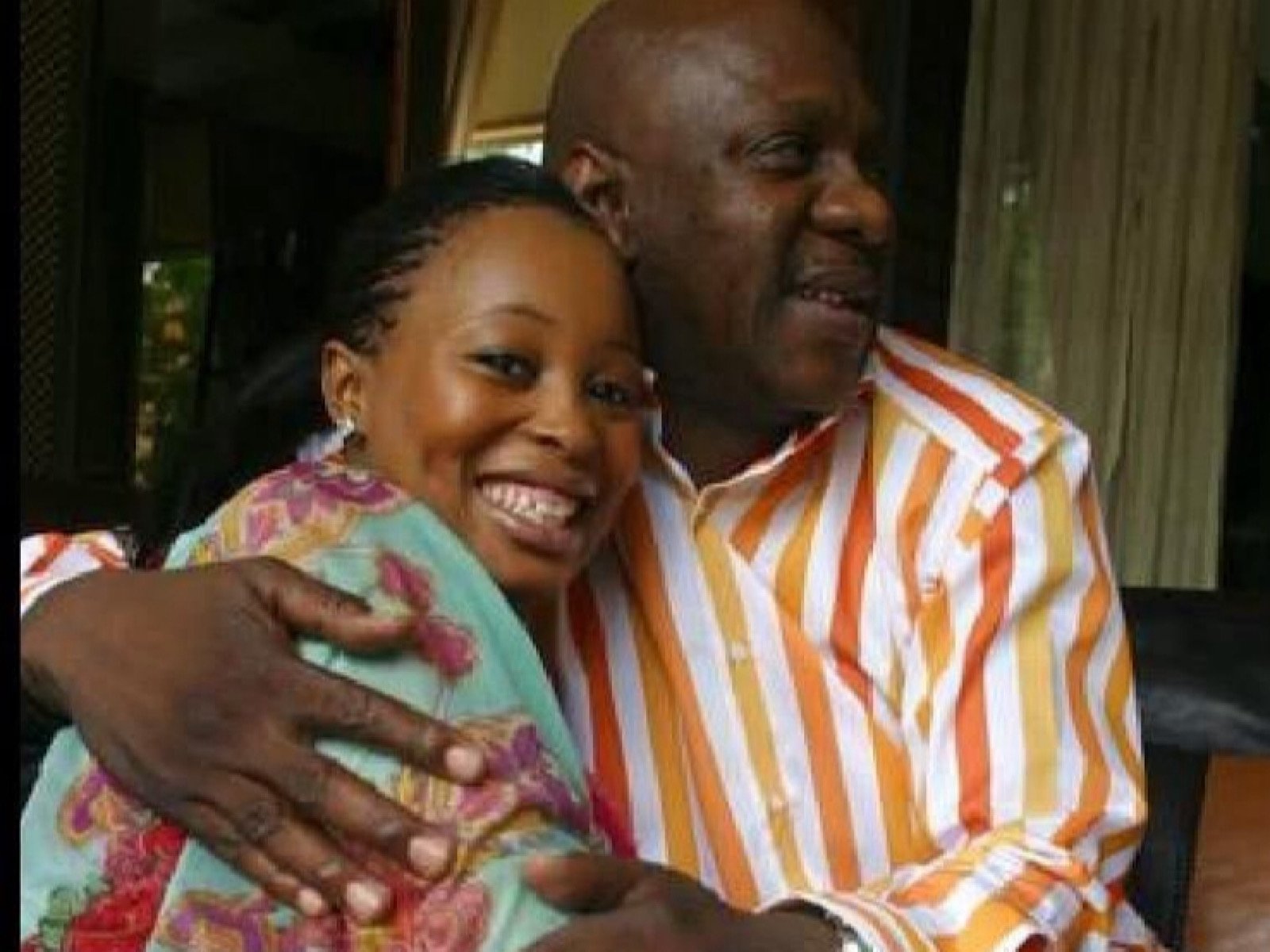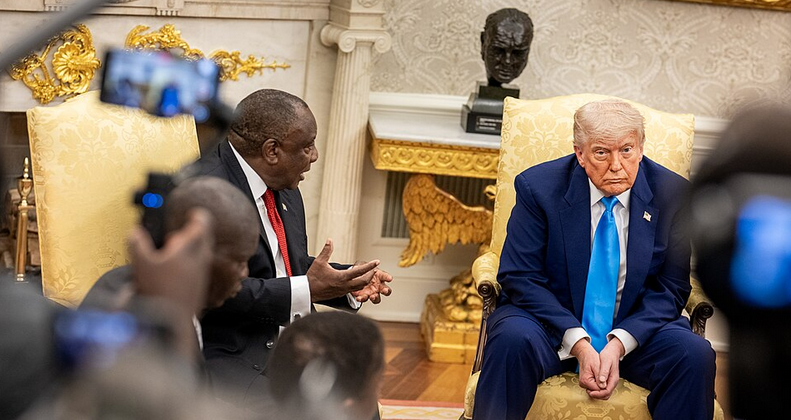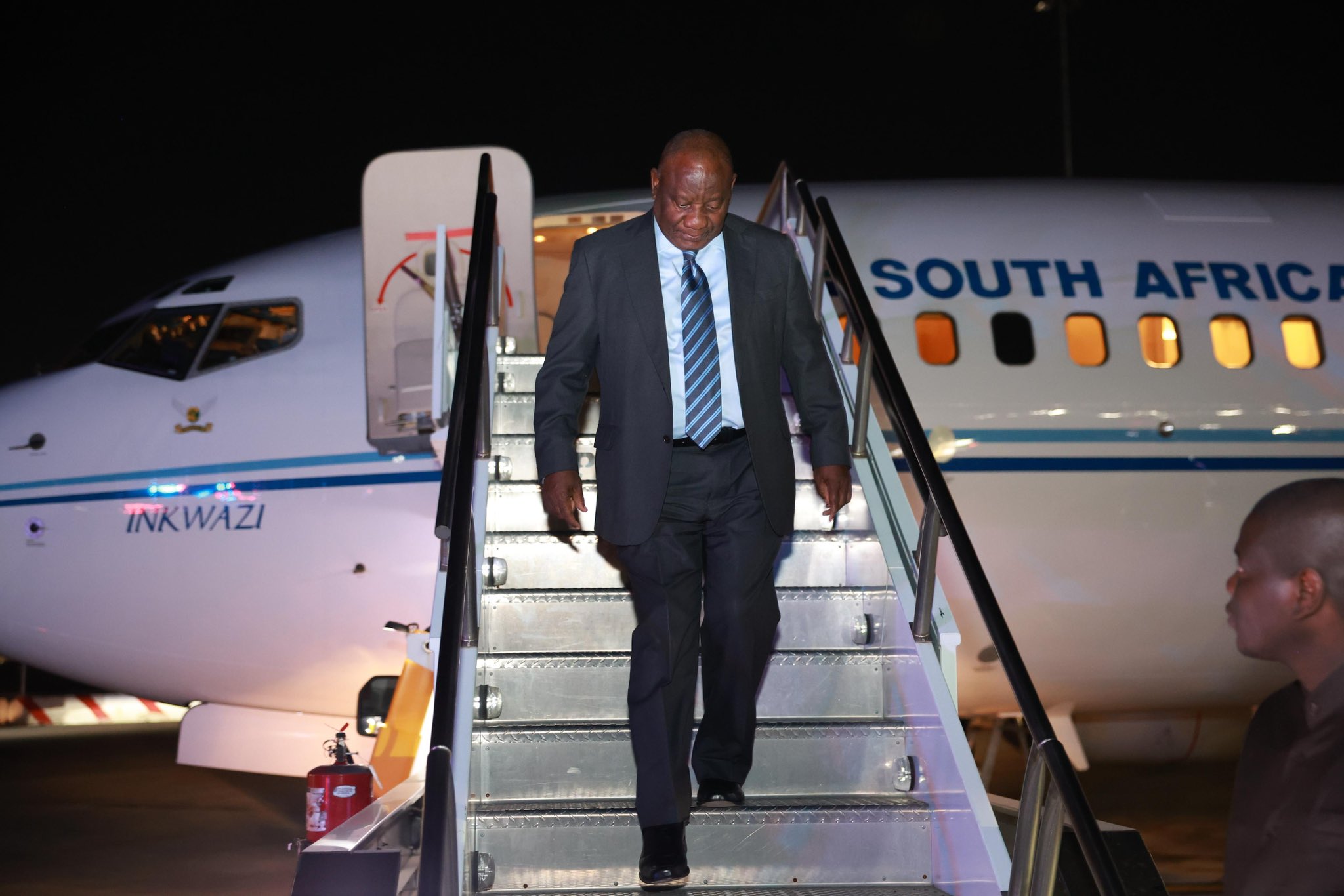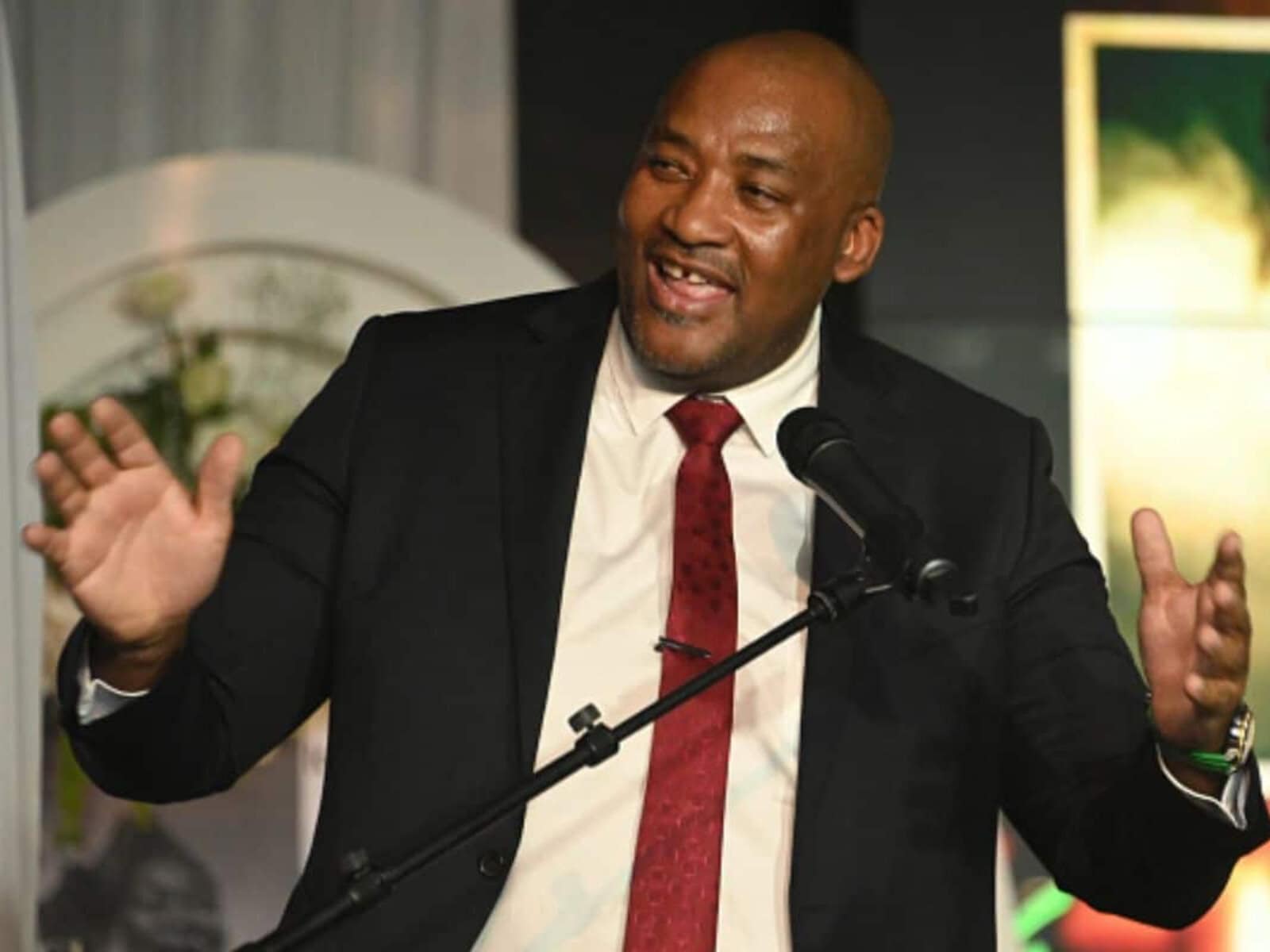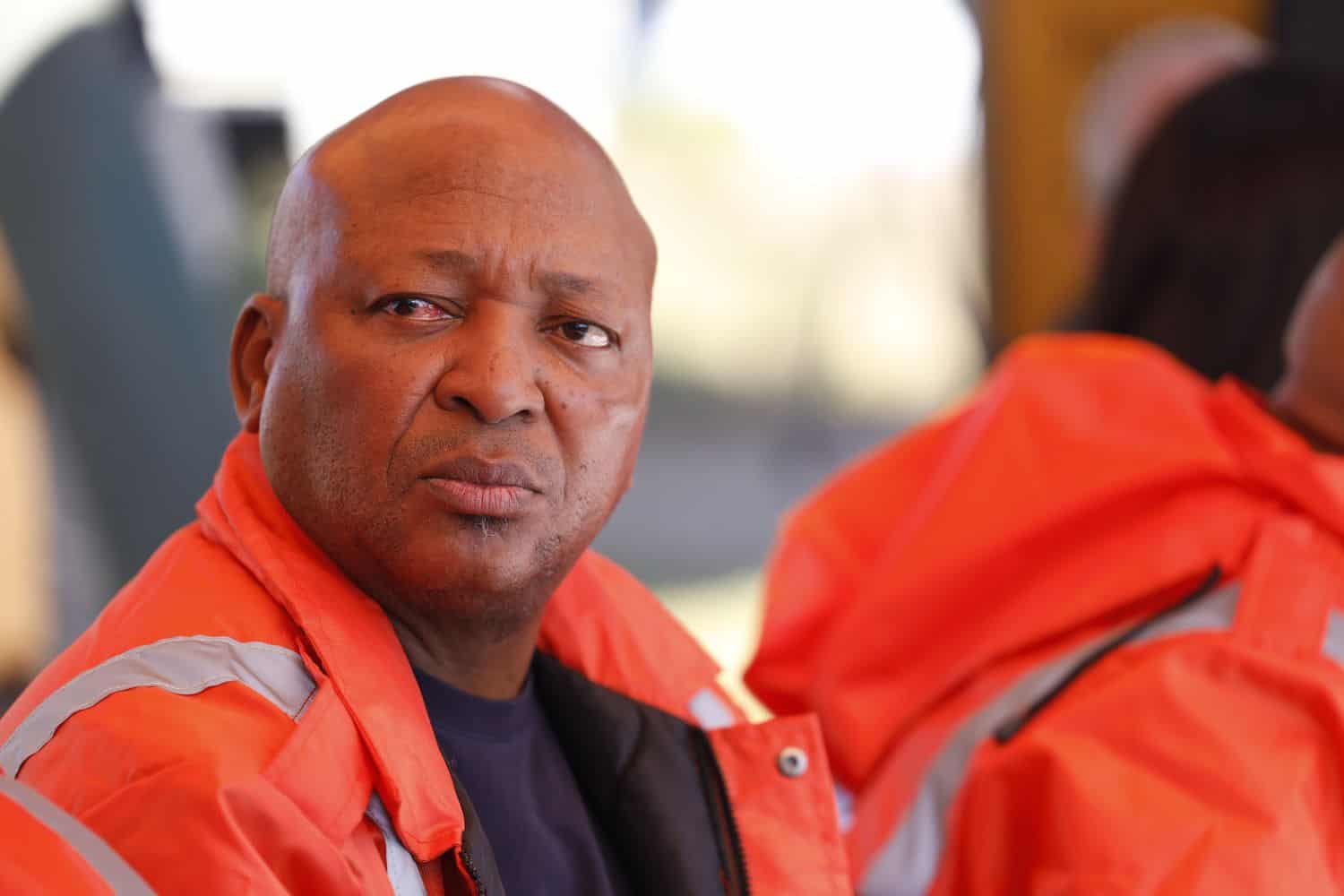Share current article via Email Share current article via Facebook Share current article via Twitter Share current article via LinkedIn
Diversifying trade partners, freight and logistics recovery and the rebuilding of the country’s chrome and manganese industries. This is how the ANC plans to change the economic trajectory of the country.
The bold 10-point economic recovery plan was deliberated on at the weekend at a special meeting of Luthuli House’s national executive committee.
President Cyril Ramaphosa hailed it as a signal of the urgency and intent harboured by Luthuli House to rapidly address the current economic emergency.
The ANC’s highest decision-making body has declared it will search for new trade parters as a crucial element of its plan to save the ailing economy, which has shown little to no growth in recent times.
This comes on the back of heightened tensions with one of the country’s largest trading partners, the US, and recent tariff hikes it imposed, which has placed trade relations in a precarious position.
Ramaphosa said the search for new trade deals and partners should be accelerated, while also strengthening participation in the African Continental Free Trade Area and addressing the impact of tariff and non-tariff barriers.
“Fundamental to the success of these efforts is sound institutional governance. Professionalisation and merit-based appointments are going to be non-negotiable. This will include an emergency industrial support package for sectors affected by increased tariffs. We will expand exports under the African Continental Free Trade Area and exports to Brics countries and other markets where we will be paying visits in due course.”
The president said their next move will be to bolster the recovery of the country’s freight and logistics sector — particularly Transnet’s recovery plan — by increasing private sector participation in rail and port operations and upgrading export corridors.
Following which, Luthuli House has set its sights on rebuilding the country’s chrome and manganese industries.
Ramaphosa vowed to finalise chrome and manganese export tariffs, implement defensive duties on dumped imports and expand alloys and battery precursor production.
The next intervention aims to use electricity tariffs for investment in transmission by establishing infrastructure in townships, rural areas and small towns to drive economic activity, economic development and municipal local technical units.
If implemented as planned, it will see the integration of local economic activity in the district development model, further linking local infrastructure to industrial policy.
“In addition to new transmission lines for our electricity, among other things, this means preferential electricity tariffs for ferrochrome, manganese and steel. We will fast-track the Transmission Development Plan to install 14,500km of grid,” Ramaphosa said.
He revealed that the NEC also resolved that the fourth intervention must be to enhance the state’s capacity to manage major projects.
“This is to address infrastructure delays due to weak capacity and fragmented co-ordination in making projects bankable and reaching the stage of completion. We will professionalise the project management cadre, establish a cross-government co-ordination unit and ringfence catalytic projects,” he said.
The ANC NEC highlighted the driving of local economic development and infrastructure as their fifth task, from which the party says they will also target labour activation initiatives and public employment.
“This requires a massive scale-up of the Presidential Employment Stimulus and other public employment programmes. Importantly, it will include reskilling for industrial sectors and expanding artisan and apprenticeship pipelines.”
The president said the NEC agreed on expanding support to small, medium and micro enterprises through investment by development finance institutions.
“In particular, concessional finance and market access for SMMEs should be expanded. Development finance institutions will be transformed into catalytic investors.”
The eighth intervention sought by the NEC is to enable the growth of provincial economies outside the main economic centres.
Ramaphosa explained that this would include the revitalisation of industrial parks with localisation targets, aligning these with special economic zones and corridor planning. The focus will be on labour-absorptive sectors, such as agro-processing, light manufacturing, cannabis and textiles.
Lastly, the NEC resolved to focus on effective budgeting and macroeconomic co-ordination.
“We will develop a sustainable budget negotiation strategy in the context of the government of national unity [GNU]. We will align fiscal, monetary, trade and industrial policy, and mobilise development finance institutions and pension funds for productive investment. In the course of this, we will craft innovative financing mechanisms and processes that will enable us to fund the key catalytic infrastructure projects.”
This element comes in as a crucial intervention coming from a disastrous budgeting process, which almost saw the collapse of the governing coalition earlier this year. The contentious budget priority differences and political party ideological leanings saw the finance minister presenting budgets that partners were not happy with, which were eventually passed on the third attempt.
However, the president and his cohort believe that these 10 interventions align with and support the work under way in all spheres of government.
The ANC will have the task of convincing its coalition partners in the GNU to back their vision and adopt these interventions as part of the government policy and programme.
TimesLIVE
[SRC] https://www.timeslive.co.za/news/south-africa/2025-10-06-luthuli-house-unveils-10-point-economic-recovery-plan-for-sa/
 Visit the website
Visit the website

